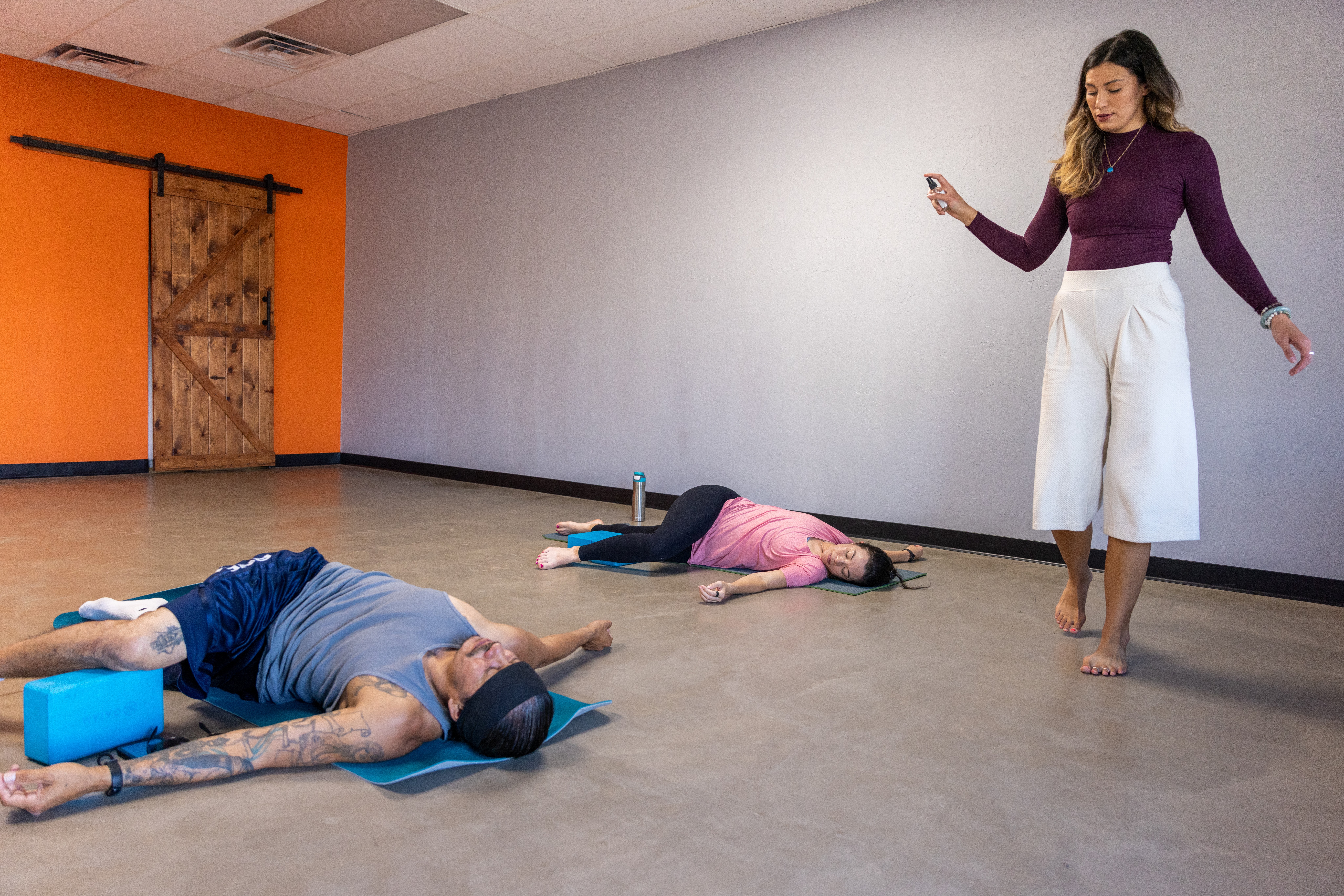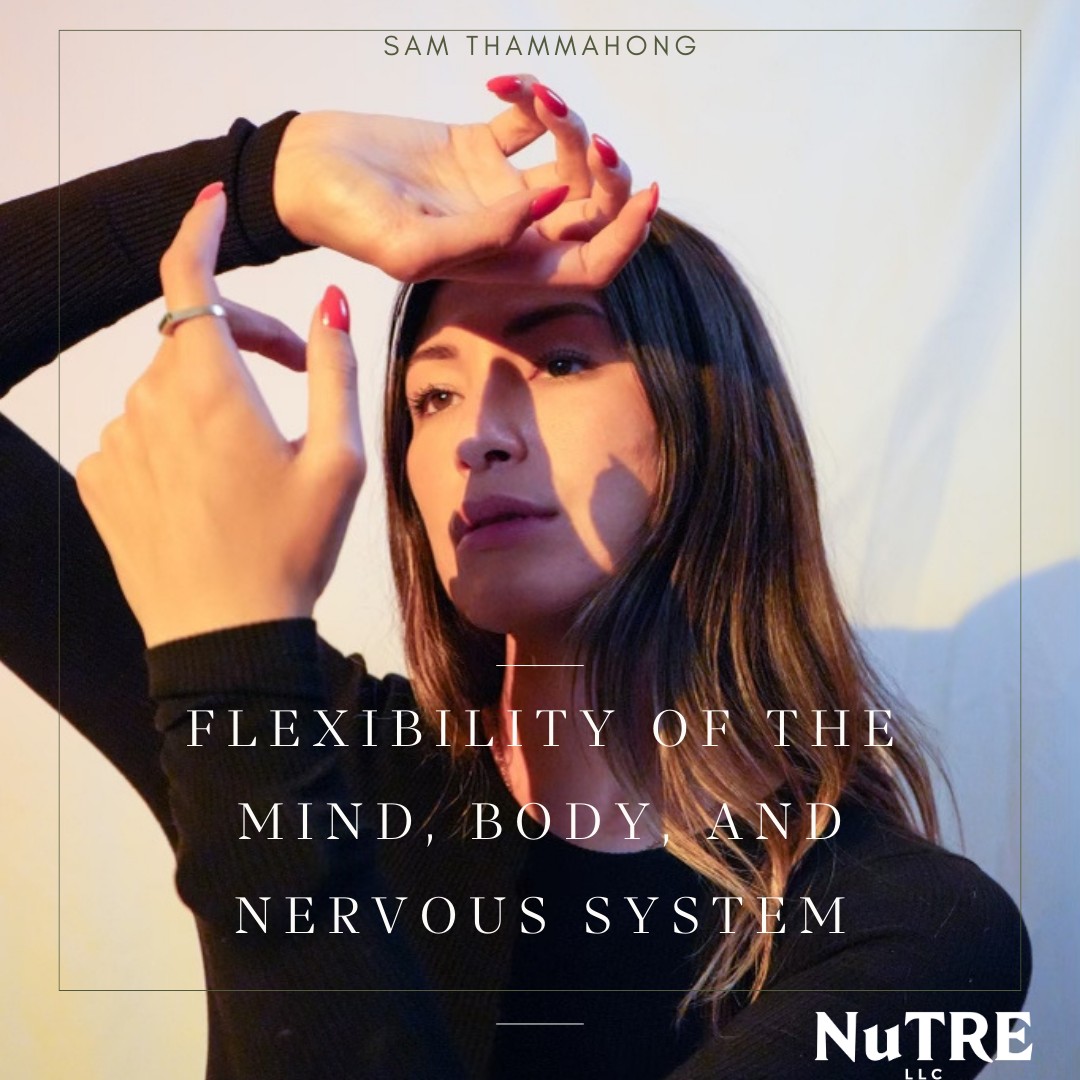We recently connected with Samantha Thammahong and have shared our conversation below.
Samantha, we’re so excited for our community to get to know you and learn from your journey and the wisdom you’ve acquired over time. Let’s kick things off with a discussion on self-confidence and self-esteem. How did you develop yours?
I consider myself a confident woman and on multiple occasions have been told this is a trait I possess. This is not the easiest road to travel, as there are plenty of drawbacks of being a confident woman. Confidence challenges traditional gender roles and expectations to be modest and agreeable. More than likely she will have to combat internalized sexism and learn to be ‘ok’ with people misinterpreting confidence as arrogance. Both men and women uphold this belief of what a woman must appear and act like and because it is not the status quo and indicates a blip in the typical patterned behavior in society, this is perceived as threatening to many people’s nervous systems. This perceived ‘threat’ will cause someone who may be more dysregulated in their nervous system to evoke feelings of discomfort or resistance due to this difference in behavior. In an America that is overprescribed to the point where we have phony shortages living day to day on autopilot, it’s time for us to become cognizant of real vs perceived threats to the nervous system. While we can blame our intergenerational trauma or small town we grew up in, it really isn’t that hard to hack someone’s nervous system. Just give them financial distress, alcohol and SSRI’s to numb the pain with no tools to overcome the anxiety and depression, and a scary movie as icing on the cake.
In a world where I am perceived as a threat to male dominance in a patriarchal society, I have been assaulted and/ or harassed at every single job that I have ever had. That is, until I started my own endeavor to learn and educate on regulation of the nervous system.
The cultural conditioning that plays out is due to the judgment cast upon a person that does not fit into a box. The cultural norms that perpetuate stereotypes not only equate women with passivity and meekness, but they promote those who conform into these boxes. Categorical thinking is the very basic concept of how the brain works, it’s what keeps us safe! When the brain is used to working in these basic concepts and focuses on judgment which utilizes the rational thinking brain, this person’s mirror neurons are not active. This shuts off the capability for a person to empathize, relate, and co-regulate, which is a survival mechanism. Mirror neurons have been said to have the potential to provide a mechanism for action-understanding, imitation-learning, and the simulation of other people’s behavior. The theory states that children use their own emotions to predict what others will do. Therefore, we project our own mental states onto others. Mirror neurons are activated both when actions are executed, and the actions are observed. This unique function of mirror neurons may explain how people recognize and understand the states of others; mirroring observed action in the brain as if they conducted the observed action.
A person who is unfamiliar and uncomfortable with confident behavior may struggle to understand the value of creating equality in relationships that value healthy communication and amplification in skills whether it’s academic, professional, or personal. Doing hard things together, from a relational standpoint, only continues to build confidence, rapport, and reinforces positive self-perception amongst all parties. It displays the power with relationships and trumps the outdated ideal of power ‘over.’ Brene Brown said it best, ” Power over is driven by fear. Daring and transformative leaders share power with, empower people to, and inspire people to develop power within. ”
I consider myself a confident woman, a trait that has been acknowledged by others on numerous occasions. However, it’s important to acknowledge that navigating this path isn’t always straightforward. Being a confident woman often challenges traditional gender roles and societal expectations of modesty and agreeability. Unfortunately, confidence can sometimes be misinterpreted as arrogance, leading to internalized sexism and the need to navigate through societal perceptions.
Both men and women contribute to these expectations, which can trigger discomfort or resistance when encountering behavior that deviates from the norm. In our society, which is often numbed by overprescription and autopilot living, it’s crucial to differentiate between real and perceived threats to our nervous systems. Intergenerational trauma and environmental factors can certainly play a role, but it’s alarming how easily one’s nervous system can be manipulated with financial stress, substance abuse, and media consumption.
In my experience, being perceived as a threat to male dominance within a patriarchal structure has resulted in instances of assault and harassment in every job I’ve held. It was only when I embarked on my journey to educate myself and others about nervous system regulation that I found a path to empowerment.
The societal conditioning that perpetuates these stereotypes stems from the judgment imposed upon those who refuse to conform. Cultural norms often associate women with passivity and meekness, rewarding those who fit neatly into these boxes. This categorical thinking, ingrained in our brains for survival, inhibits empathy, understanding, and co-regulation, vital for human connection.
Mirror neurons play a crucial role in understanding and empathizing with others, allowing us to simulate their behavior and emotions. However, those unfamiliar with confident behavior may struggle to grasp its value in fostering equality and healthy communication. Engaging in challenging endeavors together fosters confidence, strengthens relationships, and promotes positive self-perception, shifting away from outdated power dynamics towards collaborative empowerment.
As Brene Brown aptly put it, “Power over is driven by fear. Daring and transformative leaders share power with, empower people to, and inspire people to develop power within.”
Appreciate the insights and wisdom. Before we dig deeper and ask you about the skills that matter and more, maybe you can tell our readers about yourself?
I have been in Phoenix for just over two years, where, like most businesses, I have been in Phoenix for just under two years, like any business, there have been obstacles and new challenges. These obstacles have ultimately led me to look deeper into my core values that represent myself and my business. It remains important to me to build from a strong foundation and collaborate with those who have shared goals and passions. Through these hardships, it has only brought me more incredible partnerships with more personal alignment.
Every experience on this journey has taught me lessons and brought immense joy and gratitude. As I continue to connect deeper with myself, I find myself in deeper connection with my community. Where I am able to hold myself more, I feel more held in return.
I want communities across the globe to experience what NuTRE has to offer and for the tremor mechanism to further connect us all and regulate our nervous systems.
My business, NuTRE, was founded with the intention of sharing TRE with a holistic approach. TRE, which encompasses grounding, somatic exercises, and SUTT (Self-Induced Unclassified Therapeutic Tremors), is aimed at nourishing and nurturing individuals. The term ‘nutre’, meaning to feed, nourish, and nurture, resonated perfectly with this mission.
If you had to pick three qualities that are most important to develop, which three would you say matter most?
The top three essential skills are tenacity, consistency, and unwavering confidence in the value of your work. My advice is to trust your intuition when faced with decisions, especially if something doesn’t feel like a resounding “yes” or even a “maybe.” If it doesn’t evoke a strong sense of enthusiasm or alignment within you, there might be a valid reason behind it. Always listen to your gut instinct and follow where it leads you.
Is there a particular challenge you are currently facing?
It’s a common notion in the general population that seeking therapy is advisable when facing unresolved issues. However, determining the right modality of mental health care can be challenging and is best addressed through education on different approaches and their effects on our bodies.Therapy provides an opportunity for individuals to reflect on past experiences, understand their emotions, behaviors, and beliefs, and equip themselves for future events. Talk therapy, focusing on cognitive and emotional aspects, is considered “top-down processing,” raising the question of whether verbal exploration alone can heal deep-seated traumas.
Various types of psychotherapy offer diverse approaches to addressing clients’ mental health, interpreting contextual clues from past experiences and expectations. While talk therapy offers valuable insight into how we process information, it should not be considered inherently superior to other therapeutic modalities. It’s crucial to recognize that therapy alone may not fully address all aspects of trauma release.
Our brains are constantly balancing the errors we make and our ability to predict.This determines how much of our experience is rooted in the outside world or our own brains (Barrett, 2017, 65). Each of us needs to be able to perceive our raw sensory experience, our mind’s interpretation of it, and to be able to discern between the two (Kessler, 2015). Those who disregard the raw sensations may have very little direct experience with [their] own lives (Kessler, 2015). Our brains use our experiences to keep us alive and well, by calculating our body’s needs through prediction creation. These predictions are the root of where our emotions come from. This type of processing is largely subconscious and can be adjusted consciously and subconsciously through prediction error. Though this is an indispensable aspect of human cognition, bias especially when we encounter ambiguous or incomplete information. For example, through memory research, there are many implications for eyewitness testimonies in the court of law due to our inability to accurately recall past experiences (Sinclair et al., 2021). Corrections of our prediction error are dependent on pattern recognition, self-reflection, a decrease in stressful stimuli, and somatic repetition. As we learn and grow as adults, we may be able to navigate complex situations more efficiently and effectively by reducing stress and exposure to stressful environments, processing with a therapist, and utilizing somatic therapies.
When we take a look at “bottom-up processing” where we process sensory information and use clues to understand that information, we then begin to reconnect the mind-body connection and begin to regulate the nervous system . Somatic therapies, such as TRE (Tension & Trauma Releasing exercises), EMDR, Feldenkrais, etc. foster integration of the mind and body. This integration looks like understanding and acknowledging feelings and emotions down to the integration at a cellular level.
It is important to highlight the approach of combining top-down and bottom-up processing strategies to bridge the [brain-body] disconnect that is often so difficult to address with [talk] therapy alone (Kearney & Lanius, 2022). Conventional advice focuses on one way to heal, but it is vital to embrace the interplay between top-down and bottom-up processing to provide a more holistic view on overcoming stress and trauma. In this light, we can step into the resilient and empowered beings we were meant to be.
Contact Info:
- Website: https://linktr.ee/Sam2Nutre
- Instagram: @nutre.llc
- Facebook: https://www.facebook.com/nutre.llc/
- Other: Yoga @ RKDA: https://app.glofox.com/portal/#/branch/6568ee0b777405f031063772/classes-week-view/65f378fc58f0ab42c00f72b9/book?book_from=1712473200 Intro to TRE: https://app.glofox.com/portal/#/branch/6568ee0b777405f031063772/classes-week-view/660716a576eedf9dd9074383/book?book_from=1712991600







Image Credits
rust shirt: Monique Gomez Affirmations: Ashley Kirkland




